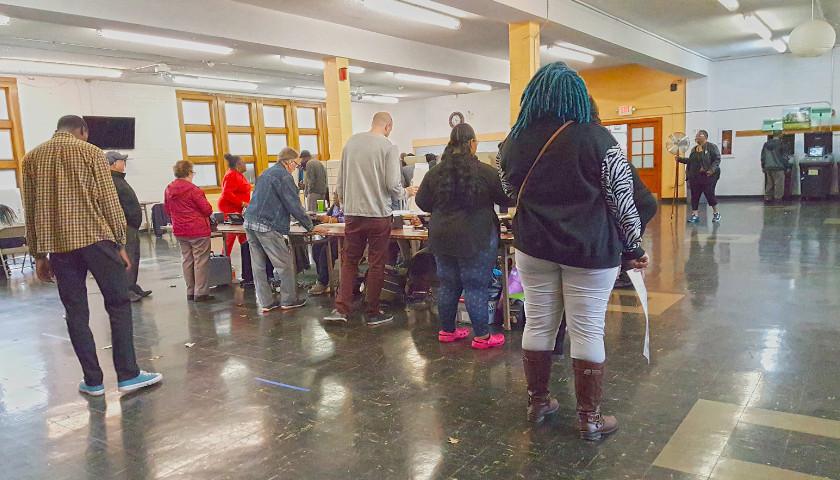The Arizona House of Representatives passed a new house bill (HB) Wednesday clarifying the early ballot envelope voter signature verification standards. This bill came from State Representative Alexander Kolodin (R-Scottsdale), who celebrated the bill passing with bipartisan support.
“This goes to show that when you offer reasonable and necessary solutions to problems, you can reach consensus on real solutions for the people of Arizona. We Republicans are willing to do that and yesterday, we found out that there are some Democrats that are willing to do that as well,” Kolodin said.
✅Bipartisan House Coalition Passes State Representative @alex4arizona Kolodin’s #HB2322 to Adopt Signature Verification Rules for Early Voting
READ MORE👉 https://t.co/hWlBPysGbi@AZHouseGOP #AZLeg #HB2322 pic.twitter.com/dhJtvbmPK9
— Arizona House Republicans (@AZHouseGOP) February 23, 2023
Kolodin’s bill, HB 2322, would make a short addition to Arizona’s law by declaring that the 2020 Signature Verification Guide “constitutes the minimum requirements for comparison of signatures.”
During the House Floor session, Kolodin explained this bill is necessary because it “fills an ambiguity in Arizona law,” as rules for how counties should verify signatures were never on the books. The 2020 guide was created by former Secretary of State Katie Hobbs (D).
The guide explains what county workers should look for when verifying a questionable signature. For example, a signature in the county’s database may appear shakily written because the signer does not have a steady hand; therefore, if a signature appears too “deliberate” or ridged, it may be because someone is attempting to replicate it. Other obvious attempts at signature forgery the guide covers are odd spaces between first and last names, a slant in the writing, and a spelling mistake.
HB 2322 would officially put these guidelines into law so counties have a unified standard to work off of. Moreover, the county must reject the ballot if a signature cannot be verified using the guide’s criteria.
“Though it’s Secretary Hobbs’s guide, I actually think it’s not that bad, and more importantly, what we can all agree on is that it’s more important to have some rules rather than no rules. Regardless of what those rules are,” Kolodin said. “I think this guide represents a set of rules that everybody can live with, and it gives certainty to our elections officials and the law.”
Kolodin shared that this was his first bill to appear on the House board, and it passed by a 47-13 vote. The bill has to travel to the senate next, but Kolodin is confident that if HB 2322 arrives at Gov. Katie Hobbs’s desk, she will sign it.
Today 47 members of the House voted to add signature verification rules to Arizona law for the first time. My first bill to go on the board! On to the Senate! pic.twitter.com/pjzpfE6PyZ
— Alexander Kolodin (@alex4arizona) February 22, 2023
As reported by The Arizona Sun Times, ballot signature verification has been a focus for the State Senate Elections Committee. Expert testimony at committee meetings alleged that thousands of signatures that did not meet the Secretary of States standards were still accepted by Maricopa County.
Moreover, election integrity bills were not the only ones to pass through Wednesday’s House Floor session. HB 2555 from State Representative Joseph Chaplik (R-Scottsdale) would ensure that all physical retail businesses in Arizona must accept cash as a form of payment for a $100 or less transaction.
“People rely on using cash for transactions,” said Chaplik. “As of 2021, FDIC data estimates indicate that nearly 5.9 million U.S. households do not have a bank account. This bill is especially helpful to individuals who may be unbanked, live paycheck to paycheck, or are otherwise disenfranchised because they’re unable to make digital payments.”
Additionally, HB 2555 states that retail businesses cannot charge a fee or penalty to anyone using cash. Anyone who violates this law is liable for damages for each violation, with a fine of $1,000. Chaplik’s bill also passed with bipartisan support, with 52 legislators voting in favor.
My “Cashless Prohibition” bill passed the house 52-8. #HB2555
The 800,000 unbanked Arizonans deserve to be able to pay cash at all retail locations. Arizona will not be going cashless.
Cash is King. pic.twitter.com/Ez7TCI8lgb
— Rep. Joseph Chaplik 🇺🇸 (@JosephChaplik) February 22, 2023
– – –
Neil Jones is a reporter for The Arizona Sun Times and The Star News Network. Follow Neil on Twitter. Email tips to [email protected].
Background Photo “Arizona Capitol” by Gage Skidmore. CC BY 2.0.





